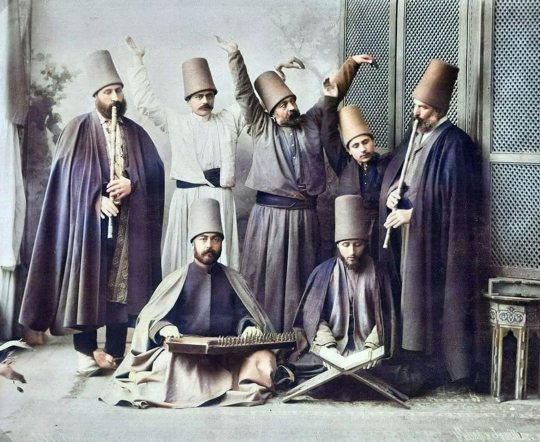Further Information on Tasawwuf 8
Imam Ibn Taymiyya Explains Those Who are Speaking about Fana’
In Book 2, volume 2, pages 396-397 of Majmu’a Fatawa, Ibn Taymiyya speaks about subject of fana’ also known is Sufism as annihilation.
He said,
“This state of love is the state of many people that are from the people of Love to Allah ‘azza wa jall, they are the people of the love of Allah and the People of the Will (al-Irada) of Allah (it is typical of many of the people that love God and seek Him.)Because that person has vanished in his lover, in Allah ‘azza wa jall–through the intensity of the love, because He vanished in Allah’s love, not his own ego’s love. And he will recall Allah, not recalling himself, remember Allah not remembering himself, visualizing Allah [yastashhid], not visualizing himself, existing in Allah, not in the existence of himself. When he reaches that stage, he no longer feels his own existence. And that is why he says in this state, “Ana al-Haqq” (I am the Truth),or “Subhanee. (Glory to Me!)” and he will say “maa fil jubba ill-Allah” (there is nothing in this cloak except Allah), because he is drunk in the love of God and this is a pleasure and happiness that he cannot control.”
Further on Ibn Taymiyya says:
“This [matter] has in it Haqq and there is in it Batil. But when someone will enter a state with his fervor intense love (‘ishq) to Allah, he will enter a state of absentmindedness, and when he enters the state of absentmindedness, he will find himself as if he is accepting the [concept] ittihad. I do not consider this a sin. Because that person is excused and no one may punish him as he is not aware of what he is doing. Because the pen does not condemn the crazy except when he is restored to sanity. And when that person is in that state and he was wrong in what he did, he will be under Allah’s address:
“Rabbana laa tuakhidhna in-nasseeena aw akhtaana”
“O Our Lord, do not take us to task if we forget or make mistakes.”
(Baqara, 286)
“And Allah says in other verse,
“wa laa junaaha ‘alaykum fimaa akhtaatum bihi”
“there is no blame on you if you unintentionally do a mistake.”
On page 339, in Volume 10, he says:
“there is a story of two men who were so respectful and loved each other very much. One of them fell in the water [of the sea] and immediately the other threw himself behind him. Then the first one, who was sinking asked, “what made you throw yourself here?” He said,”I vanished in you. and when I vanished in you I thought you were me and I was you.”
And further on he continues:
“As long as he is not drunk through something that is prohibited, it is accepted, but if it were prohibited, (the intention was bad) then he is not excused.”
And he continues (vol 2., page 397):
“And because of that [situation] many of the saints, like ‘Abdul Qadir Jilani, have an excuse, becasue they are in a state of love (‘ishq).”
That subject is also mentioned in a whole chapter in detail from page 337-page 343, entitled:
“al-Fana’ alladhee yujad fi kalam as-sufiyya yuffassar bi-thalathat umur”
This title means: “the Word of Annihhilation found in Sufism explained in Three Ways.” This chapter describes in detail the concept of fana’.



